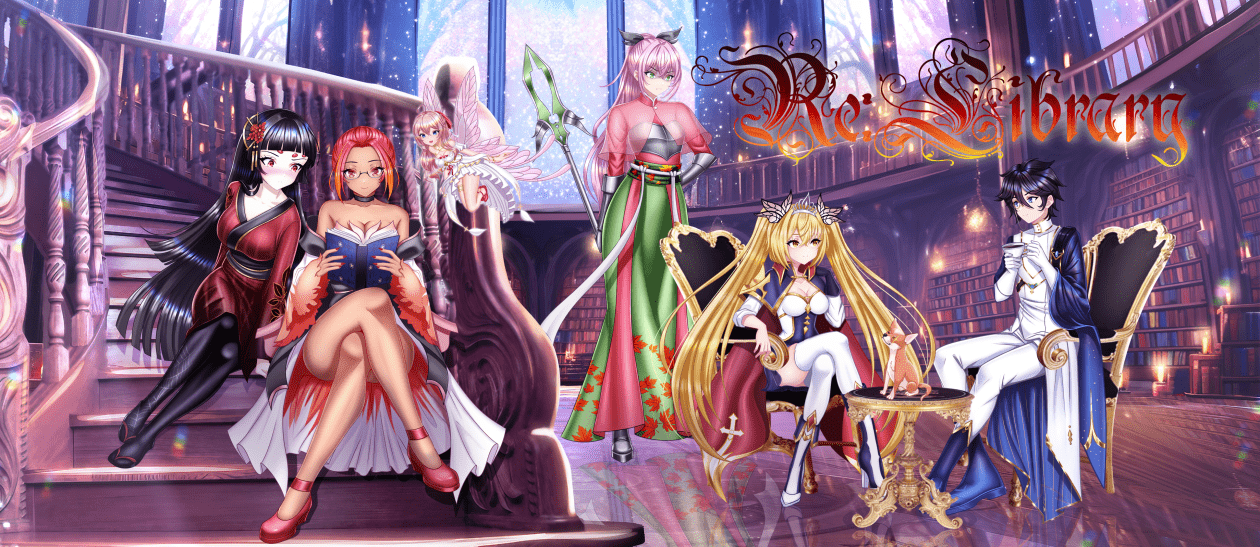| Author: Sasaki Ichiro | Original Source: Syosetu |
| Translator: Mab | English Source: Re:Library |
| Editor(s): Silva | |
Now, it’s a race against time. I’ve gathered the most prominent figures of the village and given them strict orders not to do anything rash until the negotiations with the elves are complete. Things should be okay for now. However, one can never be too cautious—you never know what life has in store.
As if he had been waiting for this exact moment, a storm of footsteps resounded outside the room, followed by the door slamming open. That’s when Damian, the son of the village chief, burst into the room with a strangely hopeful look on his face.
“I did it, Pops! My trap caught one of those Woodlanders! Use her as our hostage, and all our problems will be solved!”
Oblivious to the frozen atmosphere in the room, Damian was exuberant. After his brief moment of triumph, he realized even his father looked astonished. That’s when it finally dawned on him that something was not right.
“Hm? Pops, what’s wrong?”
“……….”
I was the first to regain my composure. With eyes full of tears, I screamed at the top of my lungs.
“You—YOU, YOU DEMOOOOOOOOOOONNNNNN—!!!!!!!”
♢♦♢♦♢
Elves are said to originate as intermediaries between spirits and humans. Both males and females are small in stature and pleasing to the eye. Many a sad story involves people making advances on a female elf, only to find out it was a male1 . Elves are famous for their longevity and their long, pointed ears—twice as long as a human’s. Despite their long ears, they aren’t particularly keen-eared; the ears seem to serve as mere decoration.
Generally, elves prefer to live in environments rich in natural abundance and spirits. They mainly consume fruits and nuts rather than meat and build their homes atop towering trees.
Elves are allergic to iron, which is why they usually keep their distance from civilized worlds. However, their long lifespans—nearly ten times that of a human—mean they experience little aging once they reach adulthood. This results in a handful of young, fearless elves and older elves, who have too much time on their hands, venturing into human settlements out of curiosity.
That being said, the majority of elves still shun human civilization and maintain their own distinct culture. In this region, they are known as ‘Woodlanders.’
“—she’s there.”
The building I was led to seemed old and rotting, probably an unused charcoal shack. The dimly lit interior smelled of dust and mold. The ceiling was riddled with spider nests, and beneath it, I saw an elf girl tied up with some kind of rope. The animosity in her eyes was palpable as I stepped through the door.
And her eyes—they were large and almond-shaped, glittering even in this darkness.
“「Light, shine upon my arm.」”
It was well into midnight already. After heaving a sigh, I produced light from my palm and levitated it near the ceiling.
“…sorcerer.” the elf squinted at the sudden introduction of light, muttering briefly in Elvish. To them, any form of magical art other than the spirit magic they use is considered evil or sorcery, making its practitioners sorcerers. Notably, the word ‘sorcery’ in their language carries the same negative connotation as black magic and necromancy, thereby making sorcerers objects of contempt2 .
For the most part, Regina taught me Elvish and a strange language called Hanamogera3 , which technically makes me a multilingual speaker. So her little soliloquy didn’t slip by me; I just pretended not to hear it.
Under the glare of the light I cast, I noticed that the elf girl appeared to be only 14 or 15 years old in human years. She was left all alone in this cold hut, wearing just a single grass-colored one-piece dress. Her footwear seemed to be woven from some type of plant vine, and she was tied up with leather straps, treated like luggage.
“Not using plant-based rope to prevent the use of spirit magic, I see. The walls are caked with dried mud, and the ground is nothing but soil. …It amazes me how his brain has some uses, but only for the most wicked schemes.”
Upon closer inspection, I found a wound on her right ankle that looked like it was caused by a jagged blade. While the wound itself wasn’t deep, the area around it was infected and had turned purple—a symptom of the iron allergy specific to elves. She probably got caught in a bear trap or something similar. If left untreated, the affected area could become necrotic, and the ankle might have to be amputated. Immediate treatment was necessary.
“—I’m going to tend to her wounds and have a discussion with her. Forgive me, but could the gentlemen please vacate the room?”
Curtiss and Walter expressed their concerns, but Norman backed me up with, “Well, the girls won’t be comfortable with a bunch of nosy guys around them,” prompting the men to reluctantly leave the hut. That left us with Eren, Lana, Vier, and me—the (technically) girls.
The elf girl glared at me and Eren as if we had just killed her parents. However, her expression softened when she saw Lana the beastfolk, only to turn bitter again the moment she noticed the Stigma around the little girl’s neck. But when her eyes fell on Vier, a divine beast, they opened wide.
“I will proceed to heal your wounds. May I ask you not to make a fuss?”
The moment she heard Elvish coming from my mouth—or more accurately, High Elvish according to Regina—she looked like a deer caught in the headlights.
“You, you speak our tongue?”
“That I do. Though I’ve merely learned its theories in lectures and have never actually spoken to an elf before, it appears that we understand each other.”
“…”
The elf girl seemed baffled that a human child was speaking Elvish to her.
“…The words you use are considered orthodox among us. I fail to understand how a human knows them.”
After a brief pause, she frowned and said those words. By the way, the term “orthodox” that she used carries nuances such as ‘sacred’ and ‘classical phraseology.’
“Is that so? I heard that my mentor in magic was taught this language by a High Elf.”
“A High Elf, you say?! That’s impossible; those High Elves should have long perished from the surface! How did your mentor come into contact with them?”
“That I do not know; she didn’t tell me much. Moreover, she is currently missing, and I have no means of finding her. …Either way, I’d like to begin the treatment. Can I trust you not to be violent the moment I cut your binds?”
“…”
The girl stared at me silently.
In a similar situation, a human might lie to gain the upper hand, but it seemed that even the concept of such underhanded tricks was alien to elves. This honesty was a boon, but her silence in response to my question indicated that she might act violently the moment I freed her.
Footnotes:
- Mab: They are traps by design!
- Mab: This part is NOT in the raw. However, the novel uses kanji, and kanji has different meaning and connotations depending the context. It’s a feature that English as a language simply isn’t equipped with.
- Mab: Hanamogera is gibberish language used in video games. Basically simlish. How do you teach someone simlish? I have no idea.


























































